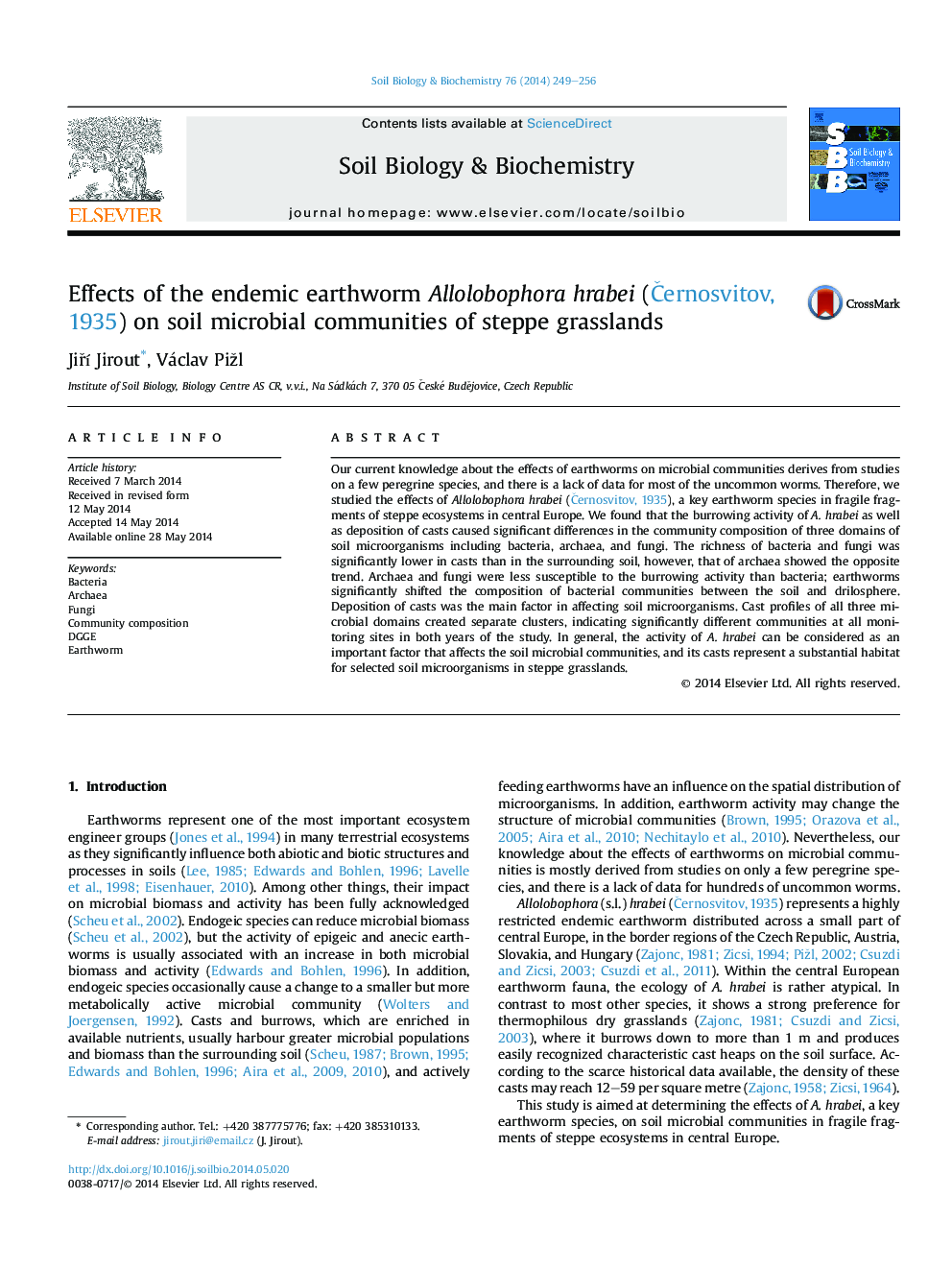| Article ID | Journal | Published Year | Pages | File Type |
|---|---|---|---|---|
| 8364678 | Soil Biology and Biochemistry | 2014 | 8 Pages |
Abstract
Our current knowledge about the effects of earthworms on microbial communities derives from studies on a few peregrine species, and there is a lack of data for most of the uncommon worms. Therefore, we studied the effects of Allolobophora hrabei (Äernosvitov, 1935), a key earthworm species in fragile fragments of steppe ecosystems in central Europe. We found that the burrowing activity of A. hrabei as well as deposition of casts caused significant differences in the community composition of three domains of soil microorganisms including bacteria, archaea, and fungi. The richness of bacteria and fungi was significantly lower in casts than in the surrounding soil, however, that of archaea showed the opposite trend. Archaea and fungi were less susceptible to the burrowing activity than bacteria; earthworms significantly shifted the composition of bacterial communities between the soil and drilosphere. Deposition of casts was the main factor in affecting soil microorganisms. Cast profiles of all three microbial domains created separate clusters, indicating significantly different communities at all monitoring sites in both years of the study. In general, the activity of A. hrabei can be considered as an important factor that affects the soil microbial communities, and its casts represent a substantial habitat for selected soil microorganisms in steppe grasslands.
Related Topics
Life Sciences
Agricultural and Biological Sciences
Soil Science
Authors
JiÅà Jirout, Václav Pižl,
